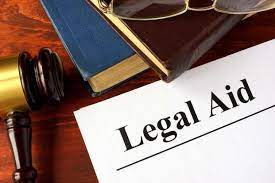What Are Legal Aid Services? Ensuring Access to Justice for All
In a society that values justice and equality, it is crucial to ensure that everyone has access to legal representation, regardless of their financial circumstances. Legal aid services play a vital role in bridging the gap between those who can afford legal representation and those who cannot. This article explores what legal aid services are, how they work, and their significance in promoting equal access to justice.
- Defining Legal Aid Services:
Legal aid services encompass a range of programs and initiatives designed to provide free or low-cost legal assistance to individuals who cannot afford private representation. These services are typically offered by nonprofit organizations, government agencies, and pro bono initiatives, with the primary objective of ensuring access to justice for all.
- Types of Legal Aid Services:
a) Legal Advice: Legal aid services often provide individuals with legal advice on various issues, such as family law, housing disputes, employment matters, and immigration concerns. Expert lawyers and legal professionals offer guidance, enabling individuals to understand their rights and navigate complex legal processes.
b) Legal Representation: In some cases, legal aid services may offer representation for individuals who require assistance in court proceedings. This may involve representing clients in criminal cases, civil litigation, or administrative hearings, ensuring they receive fair treatment under the law.
- Eligibility for Legal Aid:
Eligibility for legal aid services is usually determined based on an individual's income, assets, and the nature of their legal problem. These criteria vary by jurisdiction, and different programs have specific requirements to ensure assistance is provided to those who need it most.
- Importance of Legal Aid Services:
a) Equal Access to Justice: Legal aid services are essential in upholding the principle of equal access to justice. They enable individuals who would otherwise be unable to afford legal representation to receive the guidance and support they need.
b) Protecting Vulnerable Populations: Legal aid services play a crucial role in protecting the rights and interests of vulnerable populations, including low-income individuals, victims of domestic violence, immigrants, and the elderly. By providing legal assistance, these services help prevent injustices and ensure fair treatment for all.
c) Promoting Social Justice: Legal aid services contribute to the overall pursuit of social justice by addressing systemic inequalities. By advocating for individuals who face legal barriers due to their financial circumstances, these services actively work towards a more equitable society.
- The Funding and Challenges of Legal Aid Services:
Legal aid services often rely on government funding, grants, and donations from individuals and organizations that value equal access to justice. However, limited resources and high demand pose significant challenges to the provision of comprehensive legal aid services. Adequate funding and support are crucial to sustain and expand these services.
Law Citation: "The right to legal aid is enshrined in international human rights instruments, such as Article 14 of the International Covenant on Civil and Political Rights (ICCPR), which states that everyone charged with a criminal offense has the right to legal assistance." (Source: United Nations Human Rights, Office of the High Commissioner)
Conclusion:
Legal aid services are a fundamental component of a just and equitable society, ensuring that everyone has access to legal representation, regardless of their financial means. By providing legal advice and representation, these services bridge the gap between affordability and justice, enabling individuals to protect their rights and navigate complex legal systems. It is crucial to support and advocate for the continued expansion and funding of legal aid services to promote equal access to justice for all.
External Link: To learn more about legal aid services and find resources, you can visit the American Bar Association's Legal Aid Directory: https://www.americanbar.org/groups/legal_services/
Disclaimer: The information provided in this article is for educational purposes only and should not be construed as legal advice. For specific legal concerns, it is recommended to consult with a qualified attorney.




Post a Comment
0 Comments